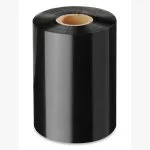Choosing the Best Inkjet, Laser, or Thermal Label Printer for Your Business

Inkjet vs Laser vs Thermal Label Printer
Inkjet vs Laser vs Thermal Label Printer : Inkjet printers are known for their ability to produce vibrant, full-color labels. They use liquid ink, which is sprayed onto the label material in tiny droplets, allowing for high-resolution images and text. This makes them a great choice for businesses that need custom, colorful labels.
Best Use Cases for Inkjet Label Printers
- Product Packaging: If your business needs visually appealing labels with vivid colors for product packaging, an inkjet printer is a perfect choice. Whether you’re selling cosmetics, beverages, or gourmet foods, the color quality provided by inkjet printers will enhance your product’s appeal.
- Short-Run Custom Labels: Inkjet printers are great for small batch runs where you need high-quality labels without committing to large quantities. This is particularly useful for small businesses that frequently change label designs for promotions or seasonal products.
- Photography or Art Labels: Inkjet printers excel in producing labels with intricate designs or photographic images. If your business involves artwork or photography, inkjet printing will provide the sharpness and depth of color needed for premium-quality labels.
Advantages of Inkjet Label Printers
- Excellent Print Quality: Especially for images, inkjet printers deliver superior resolution and vibrant color details.
- Affordable for Low Volume: Inkjet printers are relatively inexpensive to purchase, making them a good option for businesses with low to medium print volumes.
Drawbacks
- Higher Ink Costs: Ink cartridges can be expensive, especially if you’re printing a lot of full-color labels.
- Slower Print Speeds: Compared to laser and thermal printers, inkjet printing can be slower, particularly when printing large batches.
- Laser Label Printers: Fast and Efficient for High-Volume Printing
Laser printers use toner rather than liquid ink, which is fused onto the paper using heat. These printers are known for their speed and efficiency, making them ideal for high-volume printing and black-and-white labels.
Best Use Cases for Laser Label Printers
- Office Labeling and Shipping: For general office use, such as labeling folders, files, or shipping boxes, laser printers are a solid choice. They print quickly and produce crisp, professional text.
- Inventory Labels: If your business deals with large quantities of inventory, laser printers are a great solution for producing barcode labels, shelf tags, or product identification labels.
- Business Forms and Compliance Labels: Laser printers are often used for printing labels that need to include a lot of detailed text or regulatory information, such as in the legal, pharmaceutical, or logistics sectors.
Advantages of Laser Label Printers
- Speed: Laser printers are fast, making them perfect for high-volume jobs where large batches of labels need to be printed in a short amount of time.
- Cost-Efficient for Text-Based Labels: Toner cartridges last much longer than ink cartridges, which lowers the cost per label when printing simple designs or text.
- Durability: Laser-printed labels tend to be more resistant to smudging and fading compared to inkjet labels, especially in harsh conditions.
Drawbacks
- Limited Color Printing: While there are color laser printers available, they generally don’t produce the same vibrant colors as inkjet printers, making them less suitable for color-rich labels.
- Higher Initial Cost: Laser printers are often more expensive upfront than inkjet printers, although they tend to be more cost-effective in the long run for high-volume printing.
- Thermal Label Printers: The Reliable Workhorse for Industrial Use
Thermal printers use heat to print onto specially coated labels, making them unique compared to inkjet and laser printers. There are two types of thermal printing: direct thermal (where the print is applied directly to the label) and thermal transfer (where ink is transferred from a ribbon onto the label). Thermal printers are widely used in industrial settings for durable, long-lasting labels.
Best Use Cases for Thermal Label Printers
- Barcode and Shipping Labels: Thermal printers are the industry standard for printing barcodes and shipping labels. They are fast, reliable, and produce labels that are resistant to smudging, heat, and moisture.
- Retail and Warehousing: In environments like warehouses or retail stores, where labels are needed for stock tracking or pricing, thermal printers are essential. They provide clear, scannable barcodes that are durable enough for storage and transport.
- Medical and Pharmaceutical: Thermal label printers are often used for printing labels for medication, lab specimens, or patient tracking. The durability of thermal labels ensures that critical information remains readable in different conditions, including refrigeration.
Advantages of Thermal Label Printers
- Durability: Thermal labels are resistant to heat, moisture, and chemicals, making them ideal for harsh environments.
- Cost-Effective for High Volume: Thermal printers have low ongoing maintenance costs since they don’t require ink or toner. This makes them perfect for businesses with high label output requirements.
- Reliability: Thermal printers are known for their long-term durability and reliability, especially in industrial settings where they may need to print continuously.
Drawbacks
- Limited Color Options: Thermal printers typically print in black and white, though thermal transfer printers can print in color with the use of colored ribbons.
- Specialized Label Materials: Direct thermal printers require specific label materials that are sensitive to heat, which can sometimes limit your label options.
- How Each Printer Type Can Fit Your Business
While it’s common to choose between Inkjet, Laser, and Thermal label printers, many businesses find that a combination of all three is the most efficient approach. Here’s how different types of businesses can leverage each printer:
Small Retail Businesses
- Inkjet Printers: For colorful, high-quality product labels that highlight your brand.
- Laser Printers: For office labeling, shipping labels, and simple product tags.
- Thermal Printers: For durable barcode labels and price tags that need to withstand handling.
Manufacturing or Warehousing
- Inkjet Printers: For product packaging and custom branding.
- Laser Printers: For large batches of inventory and compliance labels.
- Thermal Printers: For high-volume barcode labels, shipping, and tracking purposes.
Food and Beverage Industry
- Inkjet Printers: For vibrant, custom food product labels that catch customer attention.
- Laser Printers: For general packaging or ingredient labels.
- Thermal Printers: For barcode and shipping labels that need to resist moisture and extreme temperatures.
Conclusion: Finding the Right Balance for Your Business
Choosing between Inkjet, Laser, and Thermal label printers depends on your business’s specific needs. Inkjet printers offer high-quality color printing ideal for branding and packaging, while laser printers excel at speed and efficiency for text-heavy labels. Thermal printers, on the other hand, are the workhorses of the label world, perfect for durable barcode and shipping labels. For many businesses, investing in all three types of printers allows them to cover all their labeling needs efficiently and cost-effectively.
Sources:
- Epson Official Website: https://www.epson.com/
- Label Industry Insights: https://www.labelsandlabeling.com/















